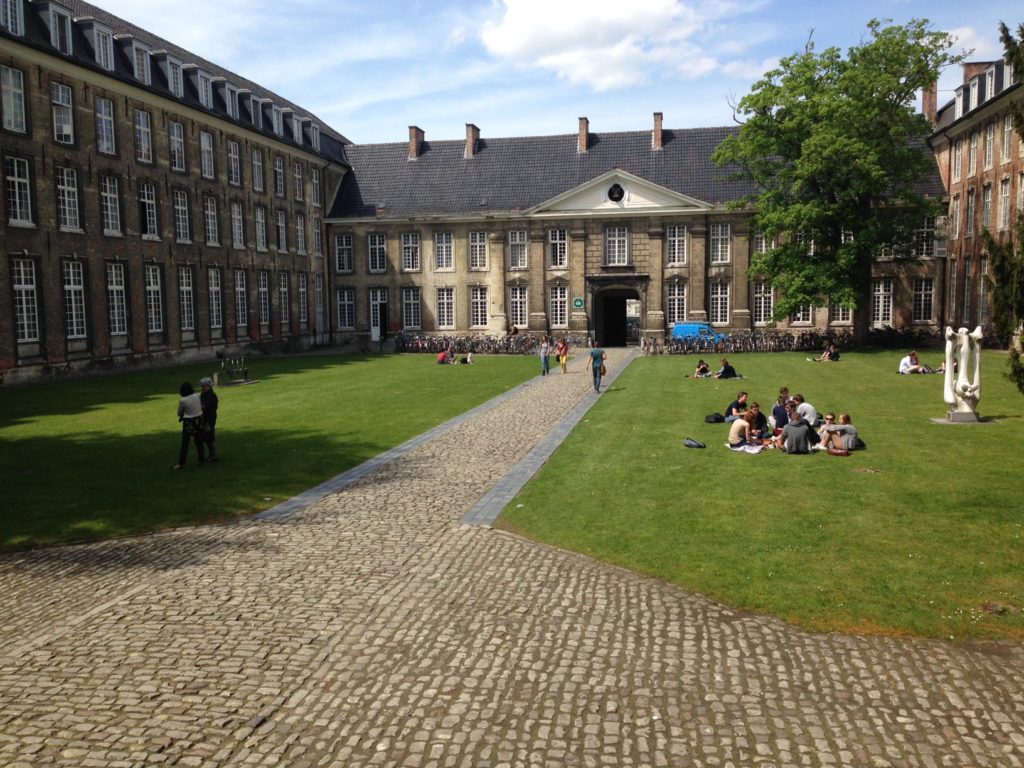17 August 2022
Subsequent to the awarding of a grant from the FWO-Research Foundation Flanders in 2020, KU Leuven invites applications for a full-time position as postdoctoral scholar on a project entitled Divine grace, human agency, and economic entrepreneurship in Luis de Molina. Supervisors: Wim François [KU Leuven] – Wim Decock [UC Louvain].

The project is the second part of a broader project entitled Knocking on Heaven’s Doors’. Free will, Money, and Emotions in the Theological Systems of Leonard Lessius and Luis de Molina (late 1500s-early 1600s). The position is tenable for two years. The first part, on Lessius, has been elaborated in 2021-2022, the second part, on Molina, will be covered in the years 2023-2024.
Jesuit theologians such as Luis de Molina (1535-1600) and Leonard Lessius (1554-1623) tended to accept that postlapsarian humans, although affected by original sin and in huge need of divine grace, preserved their positive capacities to know the good, to long for it, and to be able to perform good works that contribute to their own salvation. Whereas the first part of the project, elaborated by Dr. Eleonora Rai, focused upon Lessius, the second part will especially deal with Molina’s theology of grace, free will, and eternal predestination.
Molina’s (contested) theological position – not the least his scientia media doctrine — have elaborately been studied not only in his basic work the Concordia (1588), but also in the context of the Congregations De Auxiliis Divinae Gratiae (1597-1606). Little research has been done, however, on the subtle differences between Molina’s theology and the (more radical) positions of Lessius. Although contemporaries and co-religionists, such as Bellarmino, were aware of these theological subtleties, they have astonishingly been overlooked in contemporary research where Lessius’s position is often simply considered as a variant of Molinism. Therefore, this project has the ambition to engage in a more systematic study of subtle variants, clear-cut differences, and reciprocal influences between the theological and moral systems of Lessius and Molina. The epistolary exchange between the protagonists will also be studied to that purpose.
The Jesuits’ emphasis on man’s deliberation and freedom of action, vis-à-vis God’s initiative, even extended to the realms of economy and finance, which according to the traditional moral system were especially liable to sinful deeds, such as lending at interest. Where the connection between Lessius’s views on grace and free will, on the one hand, and his liberal economic ethics, on the other, has been studied before, this is less the case for Molina and will therefore be subject of research in the second part of the project.
Theologically educated confessors and moralists like Lessius had even to consider pressing concerns about the fate of the biblical-juridical category of the “miserabiles personae,” the poor, the orphans and the widows and how the well-to-do citizens should take responsibility here. Molina’s positions in this regard still wait for further research.
This project will further innovatively study how the theologies under consideration also promoted the major role of human agency-authorship alongside God’s inspiration in the coming into being of the biblical texts. These theories opposed Lessius and like-minded theologians to doctrines of the divine dictation of the Scriptures, as defended by the Dominican Bañez. Molina’s viewpoint on this matter, however, has never been thoroughly explored, an enterprise which may allow a fuller comparison of the two Jesuits’ theological systems.
An important question is whether the differences between Lessius’s and Molina’s theology of justification – including their consequences in the moral field –, as well as their viewpoints regarding the inspiration of the Scriptures were so crucial, that they “justified” different reactions among the leaders within the Society of Jesus, pre-eminently Bellarmino. Such a strategy led to the eventual censoring of Lessius’s works, more than Molina’s, who was saved from being condemned as an outcome of the Congregations De Auxiliis. Hence, this project will also unavoidably look at these intra-Jesuit controversies and consider the religious-political strategies promoted by the Society of Jesus at the turn of the 17th century.
By comparison, the views of the prominent Protestant theologian Jacob Arminius, charged by strict Calvinists as being ‘crypto-Jesuit’, will be further analysed for any possible reciprocal influences. Though the reception of Molina’s doctrine by Arminius and like-minded theologians has been studied, it should not be excluded that more progress is possible in this field.
With a view to the aforementioned research, the project will involve a postdoctoral scholar. In collaboration with the supervisors, the researcher will develop abovementioned program, share his/her insights at (international) conferences, and record the research results in scholarly articles and/or a monograph.
Further, the postdoctoral scholar will be involved in the organization of the Twelfth Annual REFORC Conference on Early Modern Christianity devoted to Early Modern Christianity, Economic Entrepreneurship, and Social Welfare which will take place in Leuven in May 11-13, 2023.
For more information please contact Prof. Dr. Wim François, tel.: +32 16 32 84 62, mail: wim.francois@kuleuven.be.
Your application should include:
You can apply for this job no later than September 15, 2022 via the online application tool.
Go here to read the job offer on KU Leuven’s website.